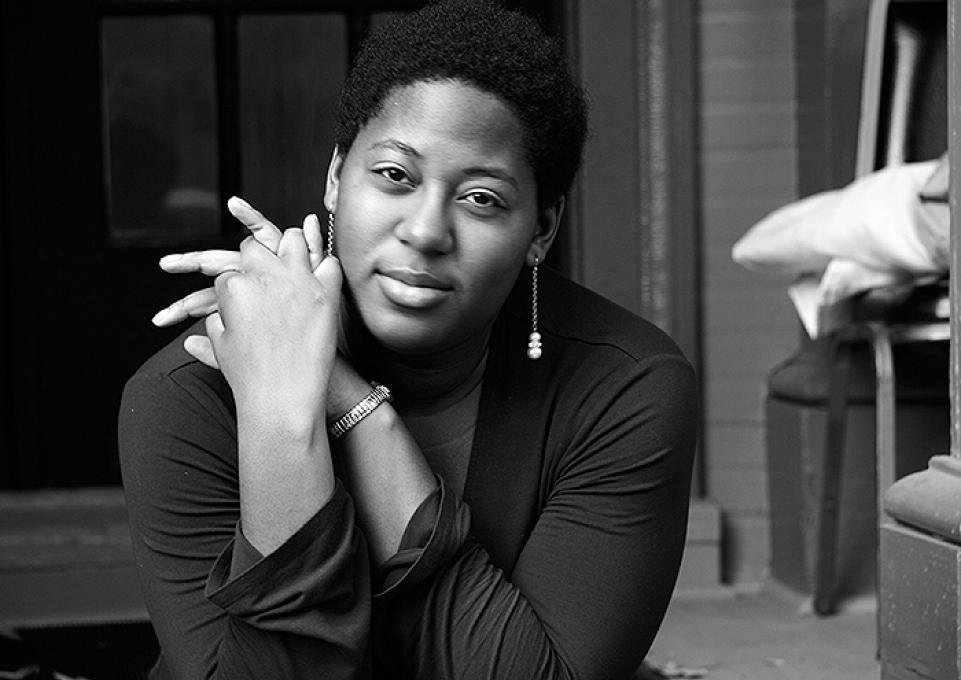
Of the 12 million Africans who were captured, enslaved, and brought to North and South America, more than 11 million never set foot in the United States. It’s those 11 million people, especially those who were brought to the Caribbean islands, who inspire Christienna Fryar’s scholarship.
Fryar, assistant professor of history and social studies education, focuses on slavery and emancipation outside the United States.
“I’m especially interested in emancipation,” she said, “because I’m fascinated by how unfree freedom was.” She sees emancipation as a process, and the process that began in the United States with Lincoln’s Emancipation Proclamation, effective in 1863, has parallels in the emancipation of British-owned slaves. The emancipation of British slaves interests Fryar because it’s part of her personal history. “My mother was born in Jamaica before it became independent in 1962,” Fryar said. “Like other people of color from the Caribbean, she emigrated to England after World War II. Sometimes this migration is referred to as ‘the empire comes home.’ Black Brits expected to be treated as British subjects in England, but Britain was not prepared for them, and there was a lot of segregation and racism, even riots.”
Long before the mass post-World War II immigration to the United Kingdom, Africans had been enslaved and taken to the British colonies. “The enslavement of Africans and the emancipation of Caribbean people is a very British story,” Fryar said. It started with the colonies in the Americas, which included the Caribbean islands and their primary crop, sugar.
“Sugar is a notoriously difficult crop to raise and harvest,” said Fryar. “The conditions of slavery in the Caribbean were so harsh that the death rate was higher, and the birth rate lower, than in the U.S.”
The first step toward the abolition of slavery in the United Kingdom’s colonies came when the U.K. outlawed the slave trade in 1807. When the law became effective in 1808, British ships were forbidden to take part in the slave trade. In 2007–2008, the U.K. celebrated the bicentennial of the law.
“That was problematic in the Caribbean,” Fryar said, “because slavery itself wasn’t abolished until 1834. And the first thing the U.K. government did then was to offer compensation—to the slave-owners.”
That compensation, £20 million, is the equivalent of £16 billion pounds today, or about $20 billion, and anyone who owned a slave was entitled to it. Nicholas Draper, now director of the Centre for the Study of the Legacies of British Slave-ownership at University College London, was instrumental in creating and publicizing a database of those who received compensation. The database, published in 2009, showed that, while slavery had been outlawed on English soil since 1772, slave-owners lived there as well as in the British colonies.
When the slaves in Jamaica were emancipated, they were shifted into a kind of apprenticeship, not into freedom or equality. “The European idea was that enslaved people needed to be prepared for freedom,” Fryar said. As “apprentices,” they were required to work for their former owners for 40.5 hours a week without wages. Those who didn’t work in the field were to achieve full freedom in four years; plantation apprentices had to wait six years. Apprenticeship ended up perpetuating similar cruelties as enslavement, and after a successful apprenticeship abolition campaign, all black Jamaicans became fully free in 1838.
Even after the end of an apprenticeship, black Jamaicans’ freedom was severely constrained. Conflicts arose between planters and freed people over land, labor, wages, and time. The former slaves fled from the plantations, went into the mountains, and formed free villages. But the struggle continued, until, in 1865, the Jamaican government brought in the military and established martial law to put down a peasant revolt.
“In a situation like this, what does freedom mean?” said Fryar. “Freedpeople were legal British subjects. But rights are denied, including the right to vote. That’s why I think that emancipation is a long process. Britain has a lot of societal problems around race, and not recognizing them makes them harder to resolve. In the United States, we, for the most part, acknowledge that the problems stem from slavery.”
About Christienna Fryar
Fryar joined Buffalo State in 2013, after serving as visiting assistant professor at Duke University, where she earned her bachelor’s degree. She earned her master’s and doctorate from Princeton University. She is a historian of the nineteenth-century British Empire, the modern Caribbean, and comparative slavery and emancipation.
